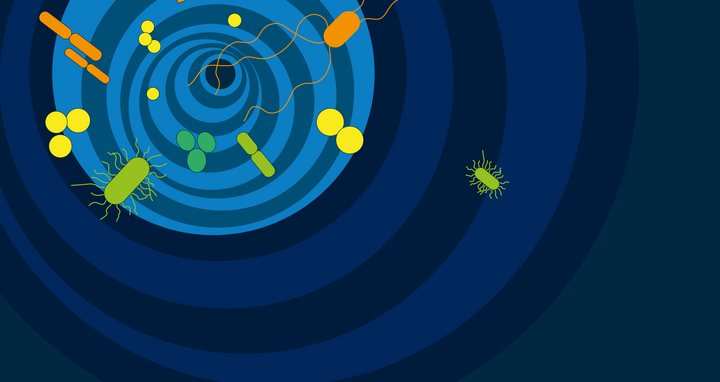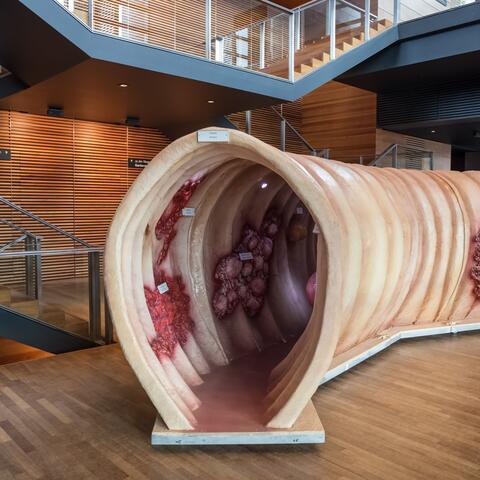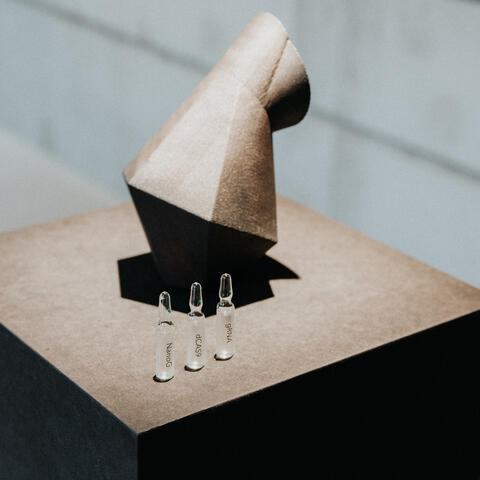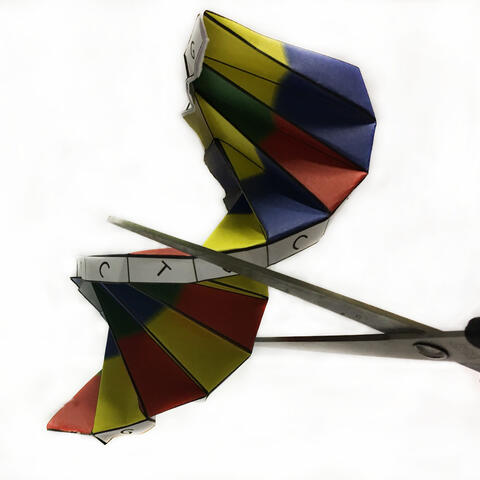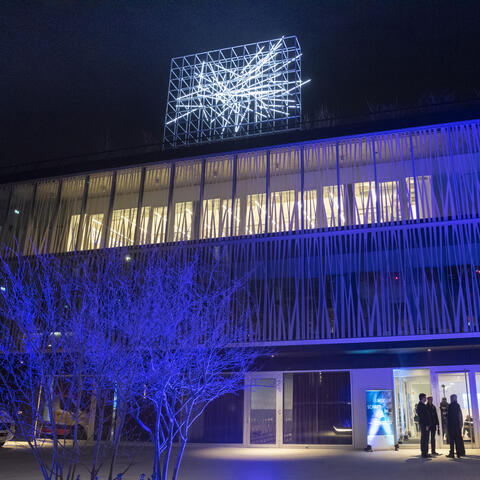Creative minds, CRISPR, and cats
The Max Delbrück Center’s Berlin-Buch campus is continuing its long tradition of participating in the “brainiest night of the year.” This year, however, MDC scientists will also be welcoming visitors in Berlin’s more central Mitte district – at the new research facilities of the Berlin Institute for Medical Systems Biology (BIMSB).
The program for this year’s Long Night of the Sciences includes hands-on experiments, science and storytelling shows, plus the opportunity to watch researchers at work in the lab. Here, we present some of the program highlights:
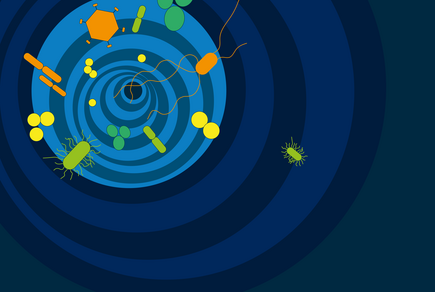
Further Information
/long-night-sciences
The universe in your gut
Walk-in model of the human gut
The human digestive tract contains an entire cosmos of minute life forms. There are roughly as many bacteria in the gut as there are human beings on planet Earth. Almost all of these bacteria are beneficial to their hosts. They help digest food, produce vitamins, and train the immune system. What’s more, simply by being there they protect their hosts from more malignant types of bacteria. But this tiny universe – the microbiome – is very sensitive. If it gets out of whack, that can have a negative influence on blood pressure, for instance.
- 4 to 9 p.m.: A walk-in model of the human gut.
- 4 to 7 p.m.: Microbiome quiz.
Both will take place in the foyer of the MDC.C Conference Center (C83), Robert-Rössle-Straße 10, 13125 Berlin-Buch.
Science & art: ÆON – Trajectories of Longevity and CRISPR
Finnish artist and designer Emilia Tikka presents ÆON, a profound artwork that postulates a scenario of how the world could look in the near future if aging were halted through genetic engineering. Tikka created her poetic piece last year while working as an artist-in-residence at the MDC laboratories and learning the basics of genome editing.
- 7 p.m.: Meet the artist, duration: 45 minutes; guided tour (English).
- 5 to 10 p.m.: The artwork and discussions on the science behind it, exhibition.
Both will take place on the 3rd floor of MDC Berlin-Mitte (BIMSB), Hannoversche Straße 28, 10115 Berlin-Mitte. - 4 to 10 p.m.: Documentation about the artist residency, exhibition. Foyer of the Herman von Helmholtz House (Building 84), Robert-Rössle-Straße 10, 13125 Berlin-Buch.
What CRISPR-Cas9 can do – and what the future may bring
The Crispr-Cas9 gene editing tool is often reported on in the media and is the topic of much discussion and controversy. But what exactly can the technology do? What might it be able to achieve in the future, and what are mere flights of fancy? Scientists Dubravka Vucicevic and Uwe Ohler have devised a system of “CRISPR traffic lights” to allow them to engage with visitors on the topic. Members of Klaus Rajewsky’s team will also be inviting guests into their laboratory to explain how the CRISPR-Cas9 tool has changed research processes and what potential it offers for medical therapies.
- 5 to 10 p.m.: Snip, snap: The gene is gone. Hands-on experiment. 3rd floor, MDC Berlin-Mitte (BIMSB), Hannoversche Straße 28, 10115 Berlin-Mitte.
- 6:30 p.m.: Café Scientifique: Genome engineering. Seminar room on the ground floor, MDC Berlin-Mitte (BIMSB), Hannoversche Straße 28, 10115 Berlin-Mitte.
- 5:30 to 7:30 p.m.: CRISPR-Cas9 technology – a milestone in genetic research and gene therapy. Duration: 45 minutes. Guided tour, registration required. Meeting point: Information point in the foyer of the MDC.C Conference Center, Robert-Rössle-Straße 10, 13125 Berlin-Buch.
Architectural tour
MDC Berlin-Mitte (MDC-BIMSB)
The MDC now has a second site in the heart of Berlin. The premises themselves are just as remarkable as the science that goes on inside. The design by architectural firm Staab Architekten takes a systems biology approach to architecture, enabling mutually beneficial encounters between different disciplines.
- 6 to 8:30 p.m.: Duration: 60 minutes. Guided tour, registration required. Meeting point: Staircase on the ground floor of MDC Berlin-Mitte (BIMSB), Hannoversche Straße 28, 10115 Berlin-Mitte.
The Bear – True stories. Told live.
Scientists leave the lab and step onto the stage to tell true stories of their own mishaps, mistakes, and moments of truth. The results are sometimes hilarious, often gripping, and always entertaining. In a format known as “The Bear,” the stories are told without notes or slides. It is a bilingual event, with presentation and stories switching from German to English and back. Between stories, moderator Dyane Neiman will perk things up with her lively audience interaction, and live music will be provided by jazz trio Jazzer’s Delight.
- 7:30 p.m.: Duration: 60 minutes. Sciencetainment. Terrace on the 3rd floor of MDC Berlin-Mitte (BIMSB), Hannoversche Straße 28, 10115 Berlin-Mitte.
Seeking new treatments for brain tumors
Brain tumors like glioblastoma multiforme (GBM) are one of the most aggressive forms of cancer, and very difficult to treat. An MDC research group led by Gaetano Gargiulo aims to change that. The team will show visitors how they are cultivating stem cells from cancer patients and discuss why animal experiments are sometimes still necessary and how they can hopefully be avoided in the future. The experts are using CRISPR-Cas9 to create patient-specific tumor cells in hopes of finding new medical therapies.
- 4.30, 6:30, and 7:30 p.m.: Duration: 45 minutes. Guided tour, registration required. Meeting point: Information point in the foyer of the MDC.C Conference Center, Robert-Rössle-Straße 10, 13125 Berlin-Buch.
Café Scientifique: Uncovering the genetic secrets of Lil Bub, the cutest cat in the world
With kind permission from lilbub.com/Mike Bridavsky.
Adorable kitty Lil Bub has millions of online followers. She is very small, her muzzle is too short, her tongue sticks out, and each of her paws has supernumerary toes. On top of all that, she was recently diagnosed with osteopetrosis, a rare bone disease also found in humans whereby the bones become harder and denser over time. Dario Lupianez and his team recently analyzed Lil Bub’s case and discovered that her unique appearance is caused by two rare genetic mutations. Using the cat as an example, they show how a genome is sequenced and how the retrieved data are analyzed.
- 8 p.m.: Duration: 30 minutes. Sciencetainment | Lecture in English. Seminar room on the ground floor of MDC Berlin-Mitte (BIMSB), Hannoversche Straße 28, 10115 Berlin-Mitte.
Further information
- Info page for the Long Night on the MDC website
- MDC@night: The newspaper about the Long Night at the MDC in Buch and Mitte (German only)
- The entire program at the MDC (German only)
- The Max Delbrück Center for Molecular Medicine (MDC)
-
The Max Delbrück Center for Molecular Medicine in the Helmholtz Association (MDC) is one of the world’s leading biomedical research institutions. Max Delbrück, a Berlin native, was a Nobel laureate and one of the founders of molecular biology. At the MDC’s locations in Berlin-Buch and Mitte, researchers from some 60 countries analyze the human system – investigating the biological foundations of life from its most elementary building blocks to systems-wide mechanisms. By understanding what regulates or disrupts the dynamic equilibrium in a cell, an organ, or the entire body, we can prevent diseases, diagnose them earlier, and stop their progression with tailored therapies. Patients should benefit as soon as possible from basic research discoveries. The MDC therefore supports spin-off creation and participates in collaborative networks. It works in close partnership with Charité – Universitätsmedizin Berlin in the jointly run Experimental and Clinical Research Center (ECRC), the Berlin Institute of Health (BIH) at Charité, and the German Center for Cardiovascular Research (DZHK). Founded in 1992, the MDC today employs 1,600 people and is funded 90 percent by the German federal government and 10 percent by the State of Berlin.

